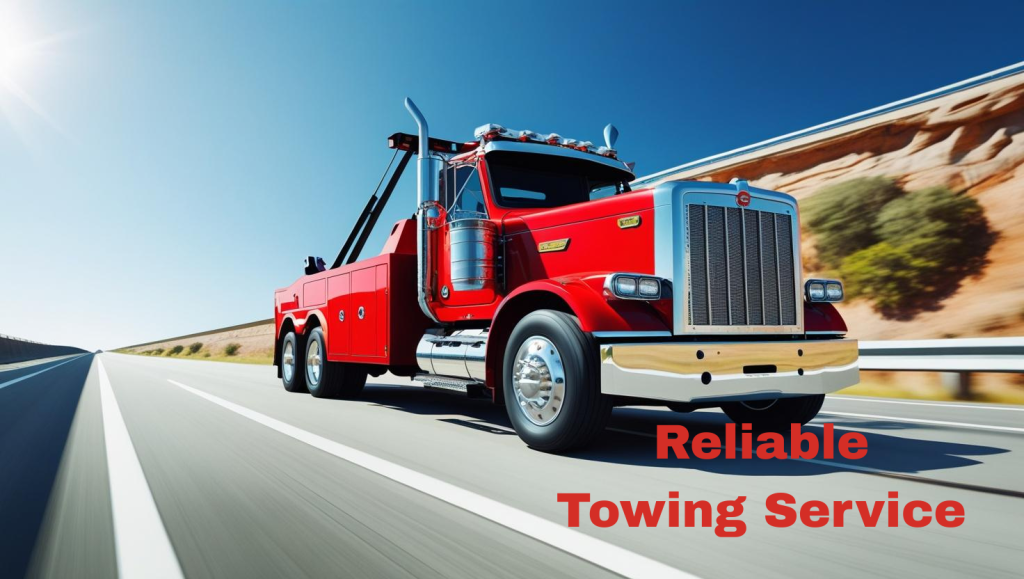Tow truck services play a crucial role in maintaining road safety, ensuring vehicle recovery, and supporting transport logistics across Canberra. However, due to the critical nature of this work, the industry is closely regulated, requiring all operators and businesses to obtain the appropriate licensing and permits.
In 2025, Canberra has implemented a more streamlined but stricter regulatory framework for tow truck operations. Whether you’re a driver, business owner, fleet manager, or simply a curious road user, understanding the legal landscape is essential.
This comprehensive guide covers everything from the types of tow truck permits available to how operators can apply for them—and why choosing a licensed towing service provider is more important than ever.
Who Regulates Tow Truck Licensing in Canberra?
Tow truck operations in Canberra are regulated under the Road Transport (Vehicle Registration) Regulation 2000 and managed at both territory and federal levels.
Local Regulation: ACT Government
The Transport Canberra and City Services (TCCS) department oversees the licensing and compliance of tow trucks within the ACT. They handle inspections, vehicle registrations, and operator qualifications.
Official source: Transport Canberra and City Services
National Oversight: NHVR
For heavy-duty and interstate towing operations, the National Heavy Vehicle Regulator (NHVR) ensures compliance with national laws, especially for oversized and heavy transport vehicles.
Official source: National Heavy Vehicle Regulator (NHVR)
Types of Tow Truck Licences in the ACT
Canberra classifies tow truck operations into multiple categories based on the type and weight of the vehicle being towed:
Class 1 – Light Vehicle Towing
This includes towing vehicles up to 4.5 tonnes, often used for personal cars and small vans.
Class 2 – Standard Tow Truck Licence
Applies to medium-sized tow trucks that transport light commercial vehicles and SUVs.
Class 3 – Heavy Vehicle Towing Permit
Required for large or multi-axle trucks, buses, machinery, and any load over regulated weight limits. Operators often need additional compliance documents from NHVR.
Commercial vs Private
-
Private operators can tow their own vehicles but must still comply with safety and registration standards.
-
Commercial services need comprehensive licensing, insurance, and documented compliance.
Having the right class ensures public safety and protects towing businesses from legal penalties.
Licensing Requirements for Tow Truck Operators in Canberra
Operating a tow truck in the ACT is not as simple as owning a vehicle. There are detailed legal requirements that all tow truck operators must meet:
Personal Qualifications:
-
Must hold a valid ACT driver’s licence with no serious infringements.
-
Background checks, including criminal history and driving records, are mandatory.
-
Operators must be over 21 years of age for heavy-duty or commercial licences.
Business Requirements:
-
Valid ABN (Australian Business Number) for commercial operations.
-
Public liability and vehicle insurance are compulsory, with minimum thresholds dictated by ACT law.
Vehicle Standards:
-
Trucks must pass annual roadworthiness inspections by approved ACT facilities.
-
Mandatory emergency lighting, company branding, and communication systems (e.g., radios or tracking devices).
-
All trucks must comply with Environmental and Noise Control Regulations.
These steps help maintain trust, professionalism, and safety across the industry.
Vehicle Compliance and Inspection Standards
Towing vehicles are subject to strict inspection regimes to ensure they’re roadworthy and capable of handling complex recovery operations.
What’s Checked During Inspections:
-
Brake system, tyres, suspension, and structural integrity.
-
Securement systems for loads.
-
Functioning lights, indicators, and rotating beacons.
-
Up-to-date vehicle logs and registration papers.
Safety Equipment:
-
Wheel chocks, load restraint systems, and fire extinguishers.
-
Warning signage or digital alerts when towing wide or slow-moving vehicles.
-
Real-time GPS tracking and dashcam systems are highly encouraged for incident documentation and accountability.
These inspections must be logged and often updated before licence renewals.
How to Apply for a Tow Truck Licence or Permit in Canberra
Applying for a tow truck licence or permit involves both vehicle registration and operator qualification. Here’s a step-by-step guide:
Step 1: Gather Required Documents
-
Valid ACT driver’s licence
-
Proof of residence
-
Police clearance
-
Business insurance documents
-
ABN and vehicle registration papers
Step 2: Choose the Right Permit
Depending on your towing class and vehicle type, choose either:
-
Light vehicle permit
-
Medium-duty permit
-
Heavy vehicle towing permit (Class 3)
Step 3: Submit Your Application
You can apply through the Access Canberra portal:
Apply here
Step 4: Vehicle Inspection & Approval
Schedule a roadworthiness inspection. Approval depends on passing safety and compliance checks.
Step 5: Pay Licensing Fees
Fees vary depending on the type of permit and vehicle class. These fees are payable annually or biannually.
Penalties for Operating Without a Licence in Canberra
Operating a tow truck without proper licensing or permits in Canberra can result in:
-
Fines ranging from $5,000 to $25,000
-
Vehicle impoundment
-
Disqualification from future licences
-
Consumer complaints leading to investigations
In extreme cases, operating illegally may result in legal charges for negligence or fraud, especially if accidents occur during towing.
NHVR Heavy Vehicle Towing Compliance (2025 Update)
Towing a heavy or oversized vehicle across state lines requires compliance with National Heavy Vehicle Regulator (NHVR) standards. In 2025, NHVR has tightened enforcement with the following changes:
Mandatory Requirements:
-
Pre-approved access permits for specific routes
-
Mass and dimension limits for towed loads
-
Fatigue management logs for drivers of large tow trucks
-
Digital submissions through NHVR Portal
Fleet operators and individual tow truck owners must keep documentation updated and available for inspection during transit.

Final Thoughts: Why Legal Compliance in Towing Matters
The towing industry in Canberra is built on trust, safety, and accountability. As road networks expand and heavy vehicle use increases, strict regulation ensures only qualified operators handle recovery and roadside support.
Licensing and permits protect both the driver and the customer. From safety standards to insurance, every requirement exists to minimize risk and improve public trust.
Choose a Licensed Towing Provider in Canberra
When selecting a towing provider, always choose one that is fully licensed, insured, and compliant with all ACT and NHVR regulations.
At Discount Towing Canberra, we offer:
-
Fully licensed truck towing services
-
24/7 emergency towing and recovery
-
Heavy-duty towing with Class 3 permits
-
Local compliance and expert staff
-
Transparent pricing and fast response times
With years of experience and full regulatory approval, we’re Canberra’s most trusted name in professional towing services. Whether you’re a motorist, fleet operator, or business owner, Discount Towing is your reliable partner on the road.
Frequently Asked Questions (FAQs)
Do I need a licence for private towing in Canberra?
Yes, even private tow trucks must meet ACT vehicle standards, be registered, and comply with safety requirements.
What’s the cost of getting a tow truck permit in Canberra?
Costs vary by vehicle class and inspection needs but typically range between $300 to $1,200 annually.
Can I operate a tow truck business from home?
Yes, provided your property is commercially zoned and you meet ACT business and environmental standards.
What documents do I need to apply for a tow truck permit?
You’ll need:
-
ACT driver’s licence
-
Police clearance
-
ABN
-
Insurance
-
Vehicle inspection certificate
How often do I need to renew my tow truck licence?
Permits are usually valid for 12 months. Renewal involves updated inspections, documentation, and fees.
Can I tow heavy vehicles interstate with a Canberra permit?
Only if you have the correct NHVR permits and route approval. Class 3 towing often requires special applications.
What happens if I tow a vehicle without a permit?
You may face legal action, including fines up to $25,000, loss of business licence, or vehicle impoundment.
Are inspections mandatory every year?
Yes. Roadworthiness inspections are required annually for all tow trucks operating in the ACT.
Is GPS tracking mandatory for tow trucks in Canberra?
While not legally required, most licensed services use GPS to improve transparency, safety, and compliance.
What is the difference between a tow truck Licence and permit?
-
Licence refers to the driver/operator authorization.
-
Permit is for the tow truck vehicle and business operation.


